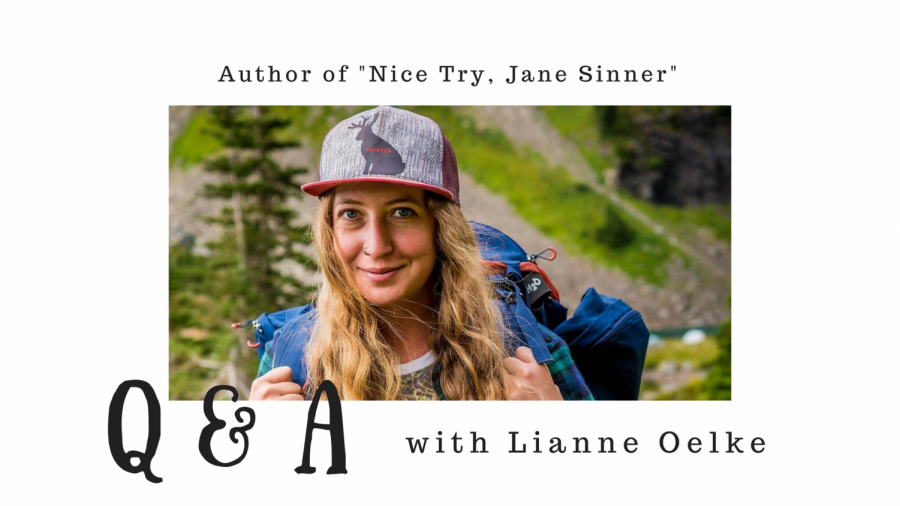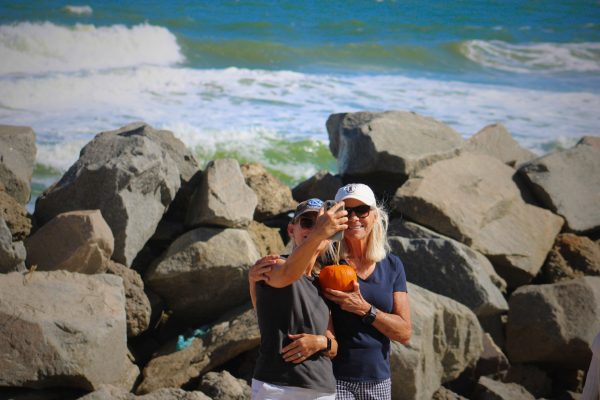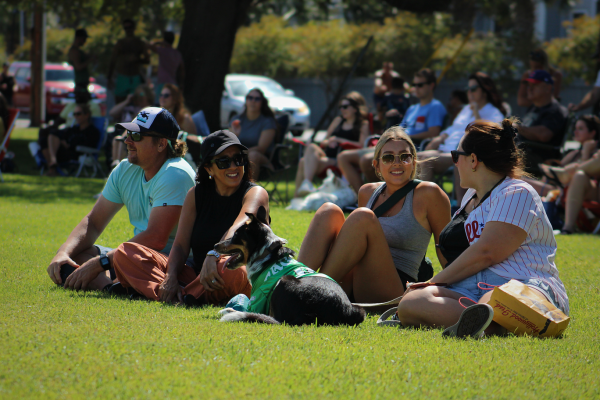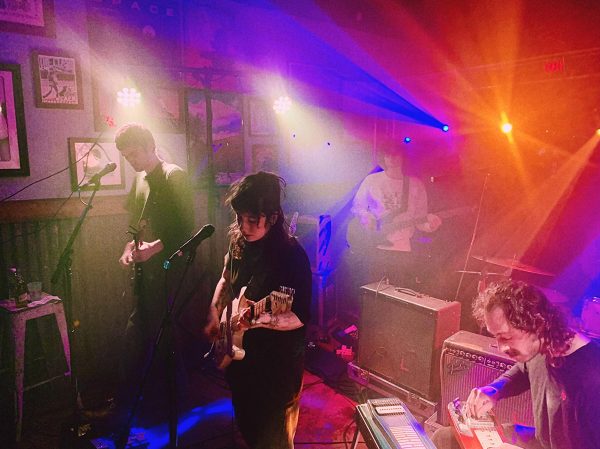A Q&A with Lianne Oelke, author of Nice Try, Jane Sinner
Over the summer, The Seahawk featured several reviews of young adult novels for the Summer Book Club series. The first pick was “Nice Try, Jane Sinner” by Lianne Oelke, which was a piece about a 17-year-old girl grappling with the loss of her religion and her friends and families reactions as well as a lingering suicide attempt.
The book was a very moving experience, and Oelke’s media team recently reached out to The Seahawk about doing a Q&A to spend more time analyzing the book. Her answers are also very moving and further convince readers to pick up “Nice Try, Jane Sinner.”
Q. How long did it take you to write this book, and did you have to do any research for the book?
A. It took me around three years to write “Nice Try, Jane Sinner.” I didn’t know I was writing a novel at first. I started playing around with my old journal entries, and eventually, they took on a life of their own. I didn’t do a lot of research (unless watching reality TV counts. It counts, right?!), although I did have to look up certain details about community colleges.
Q. What made you decide to write a young adult book rather than a novel geared towards older adults? How did it help you convey your message?
A. I didn’t start out making a conscious decision to write for young adults; I just wanted to write the book I needed to read as a young adult. I didn’t see a lot of upper teen/ college students in the books I read (at least not any that dealt with religion, depression, reality TV, and existential angst), so I wanted to fill that gap. Since I wrote NTJS for myself, I didn’t hold back. I think honesty resonates with anyone (teen or adult) looking to see themselves in the books they read.
Q. How did you find the inspiration for the House of Orange setting and characters of the book?
A. Mostly from my own life! Jane is basically a concentrated version of myself. Some of the details in her life (the basement bedroom with a curtain for a door, the guy that punches another guy in the face in front of her, her complicated background with religion) are taken from my own experiences. Also, I watched a lot of reality TV when I wrote the book, so I suppose it was only natural that shows like The Bachelor and America’s Next Top Model provided some inspiration, however over-the-top.
Q. The House of Orange characters are really funny and interesting to read about, but who would you want to have an alliance with at HOO?
A. Jane, definitely, but only if I was 100% sure she was on my side. To be honest, I don’t think I’d have what it takes to stay one step ahead of her when it came down to the final two. Chaunt’Elle would be a more trustworthy choice if I wanted to play it safe.
Q. How do you hope this book could help other young adults going through a similar situation as Jane?
A. I hope it helps by letting them know they aren’t alone in their dark, weird, and lonely thoughts. So many heavier subjects (like losing one’s faith or mental illness) are either romanticized or glossed over in mainstream culture. I want young adults to understand that no matter how desperate, alone, or hopeless they feel, there’s always someone else feeling the same thing (even if they don’t always show it).
If you could give Jane two pieces of advice, once at the beginning and once at the end of the book, what would they be?
A. First, trust yourself. If you’re feeling uncertain or shy or uncomfortable, that’s fine. Acknowledge it. Own it. Outgrow it. Lastly, give people a chance. I know, I know, people are often the worst. But sometimes they’re not. Life can be so much better when you let others in.
Q. How do you think peer pressure plays a role in Jane’s journey with depression and how does living under the constant internet presence help her/hurt her in the long run? What could society do to minimize that pressure?
A. The pressure Jane felt from her church to be a ‘good girl’ (even when she felt like the opposite), to hide her doubts and to not make waves, was incredibly isolating. Since she never felt like she could talk about her misgivings with religion or her struggles with depression, she internalized them, instead.
By signing up for a reality show, Jane tries to take control of herself. She gets to decide if she wants to play the ‘good girl’ or not. On the other hand, her need for control (and to hide her struggle with depression) forces Jane to push people away when they get too close. She thinks (at least at first) that it’s better to deal with mental illness in her head/ in her journal, rather than being open about it for the whole world to see.
Eventually, the pressure to keep up the act becomes too much. We, as a society, need to keep conversations open and honest about depression, so that young people don’t feel forced to hide who they are or put on an act. Fortunately, the number of YA books that deal candidly with mental illness are steadily increasing each year.
Q. I have been doing a series for the summer on new/newer young adult books that have been released to encourage students to branch out and read for fun, so why do you think it is important for students to read for leisure?
A. Because reading for fun is… fun! Books open up a whole new set of experiences. They allow you to imagine yourself somewhere else, to empathize with others, and become immersed in fantastic stories.
—
Readers can find “Nice Try, Jane Sinner” on Amazon.










